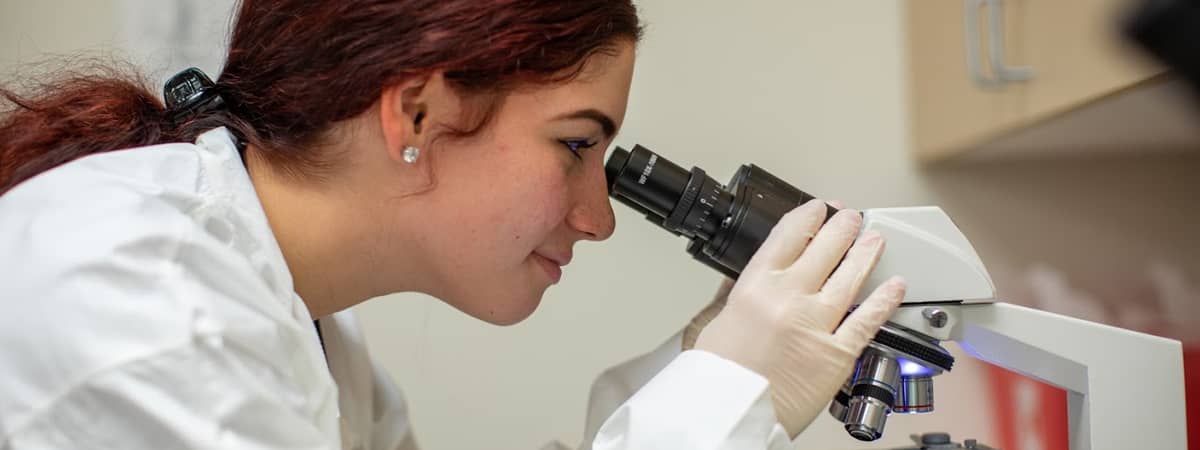Do you have an innate curiosity about the world around you and want to learn more about DNA, genetics, and evolution? If you'd like to have a career that is both stimulating and rewarding, then biology may be the field for you!
Allan Hancock College’s biology program offers students the chance to learn more about themselves and the living world around them. Within the biology discipline, students learn about molecular and chemical interactions, physiological mechanisms, anatomical structures, and explore the origins of life and evolution.
While pursuing a biology degree, students will master the art of working collaboratively and independently in lecture and lab settings and will learn how to analyze and interpret data and present their findings in papers and presentations. These useful skills will help transferring students achieve success at a university of their choice and will also be beneficial for students seeking immediate employment.
Students who earn a biology degree can pursue employment within industries that are focused on ecology, genetics, biochemistry, molecular research, education, and medical and health advancements.
This program will help you to:
- compare the major types of cells
- apply the scientific method to biological investigations
- describe evolution in a scientific context
- understand DNA technology, solve problems, and investigate hereditary patterns related to genetics
- discuss the metabolic pathways of photosynthesis and respiration
- demonstrate appropriate lab technique and lab safety protocols
- learn the functional anatomy of human organ systems
- compare and contrast physiological cell functions and regulatory processes
Degrees and Certificates Offered
Each program has unique requirements. The order in which you take courses may affect your completion time. Visit the links below to view the program requirements and a general semester-by-semester course schedule.
Associate in Science for Transfer- Biology
To view all available degrees and certificates visit the Allan Hancock College course catalog.
Programs you may also be interested in exploring:
Contact Information
Department Chair
Wendy Hadley
805-922-6966 ext. 3841
wendy.hadley@hancockcollege.edu
Administrative Assistant
Christina McMillan
805-922-6966 ext. 3202
cmcmillan@hancockcollege.edu
Dean, Academic Affairs
Sean Abel
805-922-6966 ext. 3537
sean.abel@hancockcollege.edu
LOCATION
Santa Maria Campus
Bldg. M
Map of Building M Locations
805-922-6966 ext. 3202


